A Blueprint for More Equitable Care in Public Health Crises
UCSF Partnerships with San Francisco and Community Groups Were Key During the Pandemic
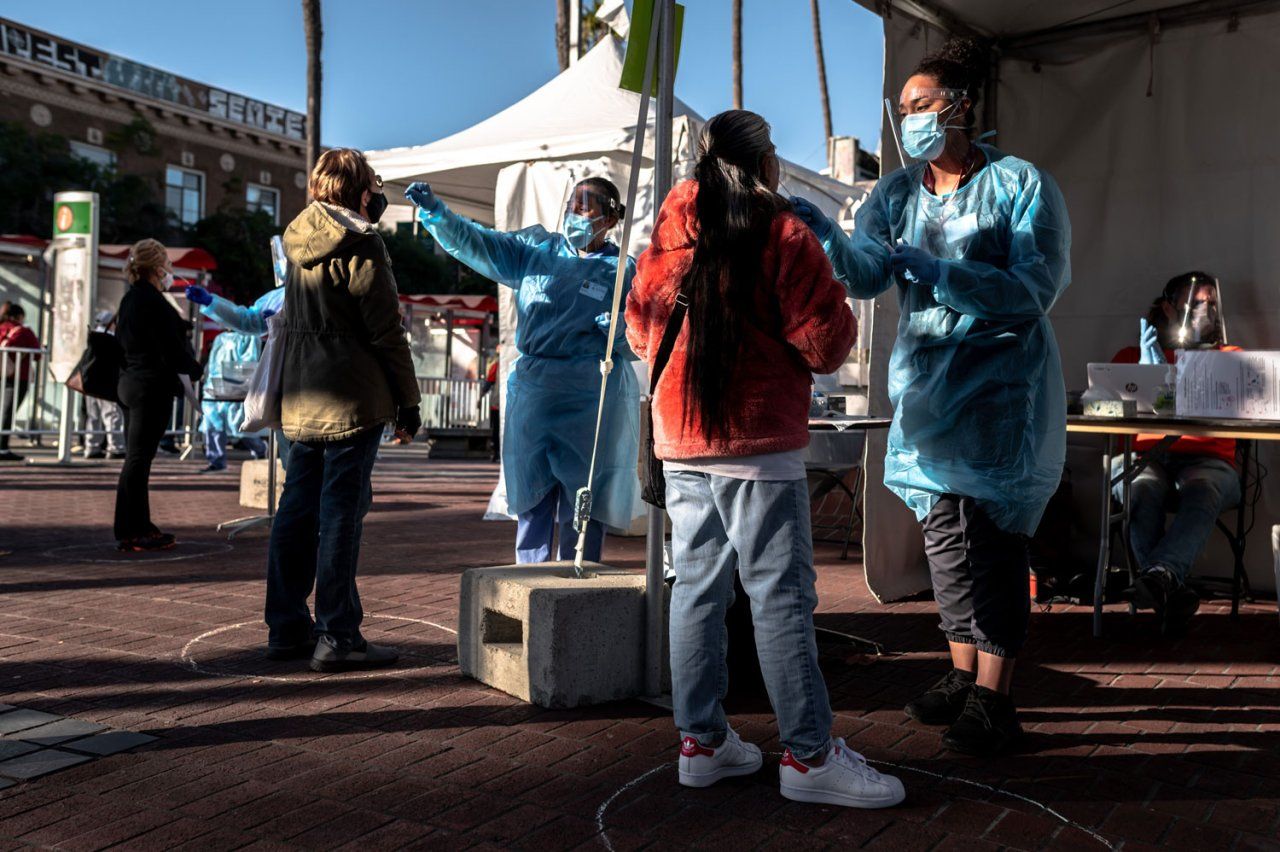
A testing lab set up within eight days, teams focused on testing and treating COVID-19 in the Black and Latinx communities, and the launch of one of the largest testing studies in the nation – these are a few examples of how UC San Francisco partnered with government and community groups to address racial, economic and cultural barriers with the goal of providing equitable care to vulnerable people during the COVID-19 pandemic.
The collaborations are documented in a new UCSF report, “Advancing COVID Health Equity: Strategies for developing an equity-first response.”
Starting in March 2020, the report chronicles UCSF’s collaboration with the City and County of San Francisco, state and Bay Area health departments, community groups, and other organizations during the COVID-19 pandemic. The report – a blueprint for providing more equitable medical care in future public health crises – describes lessons learned about public education, outreach, data collection and care delivery.
“This report reflects the progress we have made together in addressing the COVID-19 health disparities and inequities vulnerable populations experience,” said UCSF Chancellor Sam Hawgood, MBBS. “As we build on this important work, we must bridge the remaining gaps so we can sustain and expand a health-equity approach to improve public health for all.”
Building Connections to Reach Vulnerable Communities
When the COVID-19 pandemic exploded in 2020, it soon became clear that it was exacerbating long-established health disparities, resulting in Black, Latinx, Asian, Native American and other marginalized communities being disproportionately impacted.
Spurred by the early lack of personal protective equipment and test kits in the pandemic’s first months, UCSF faculty, staff and learners rallied with medical partners, community organizations and government agencies to overcome obstacles to medical care for vulnerable communities. The results were far-reaching and impacted public policy and legislation at local, state and federal levels.
A key takeaway of the report is that building on existing partnerships and establishing new ones with respected local organizations was essential to gaining the trust people needed to follow public health guidance, such as wearing masks, being tested and getting vaccinated.
Community organizations with deep roots in neighborhoods were able to reach constituents in ways UCSF, as an institution, could not. While UCSF delivered scientific expertise, services and supplies, local organizations played a vital role in directing those resources to have the greatest impact.
“The secret sauce was putting the community-based organizations in charge,” said Margot Kushel, MD, director of the Benioff Homelessness and Housing Initiative, who envisioned a program to serve unhoused persons that became a national model.
The UCSF Foundation Board of Directors acted quickly to establish a COVID-19 Response Fund, which greatly enhanced UCSF’s ability to launch new initiatives to help those most vulnerable to COVID-19. With the generous support of donors, more than $23 million was raised for that fund alone, among other COVID-related funds.
The important lessons learned from UCSF’s collaboration with partners in the community during the COVID-19 pandemic will inform efforts to address health disparities into the future. UCSF will continue to bring diverse voices to the table as it works to broaden and achieve health equity for all.
Impact Through Community Partnerships
Highlights of UCSF’s community partnerships during the pandemic include:
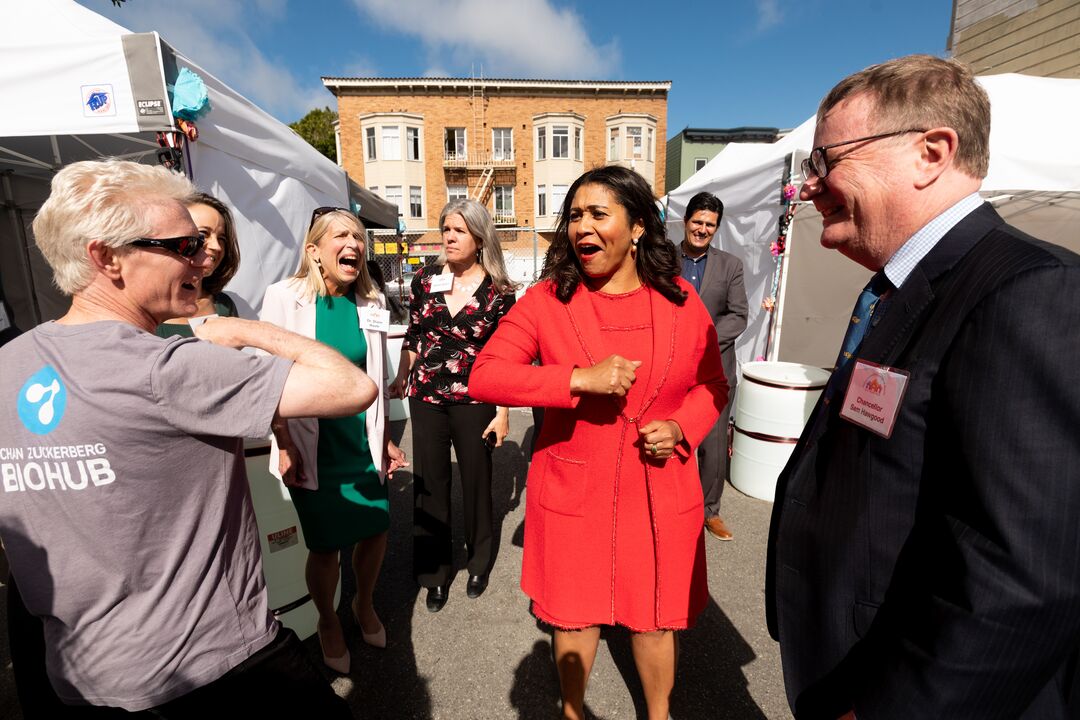
Chan Zuckerberg Biohub
In March 2020, with support from the Chan Zuckerberg Biohub and the Chan Zuckerberg Initiative, UCSF opened a lab in just eight days to provide free COVID-19 testing throughout the state. Led by CZ Biohub President Joe DeRisi, PhD, a professor of biochemistry and biophysics, the effort benefitted from California Gov. Gavin Newsom’s streamlined process that enabled more flexible state regulations governing diagnostic laboratories. Photo by Noah Berger
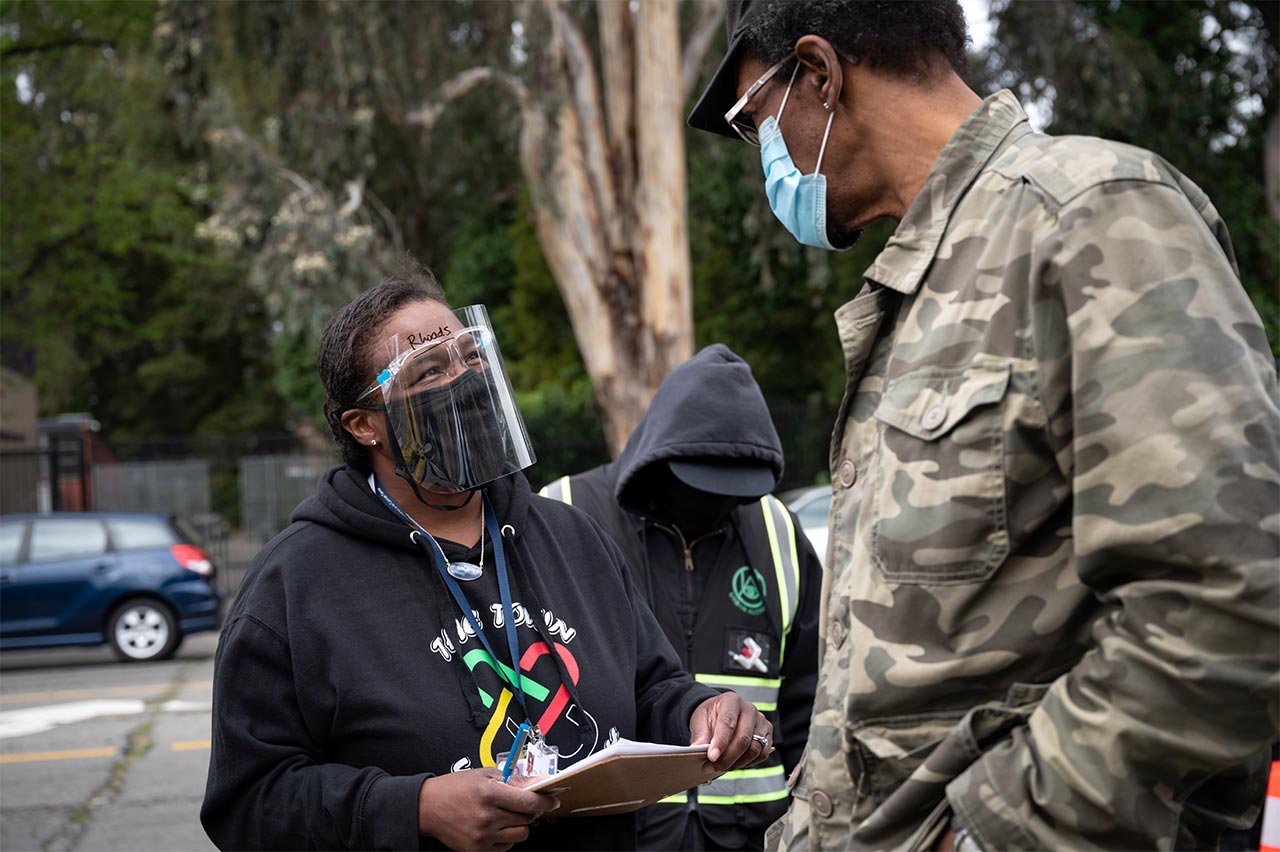
Umoja Health
Umoja Health, founded by Kim Rhoads, MD, MS, MPH, a UCSF epidemiologist and biostatistician, was formed early in the pandemic to unite about 30 organizations combating COVID-19 in Black communities in the Bay Area. Umoja, the Swahili word for “unity” or “oneness” works to help regain trust among the African-American community toward the medical establishment, while bringing prevention and treatment of COVID-19 directly to the community. Photo by Mike Kai Chen
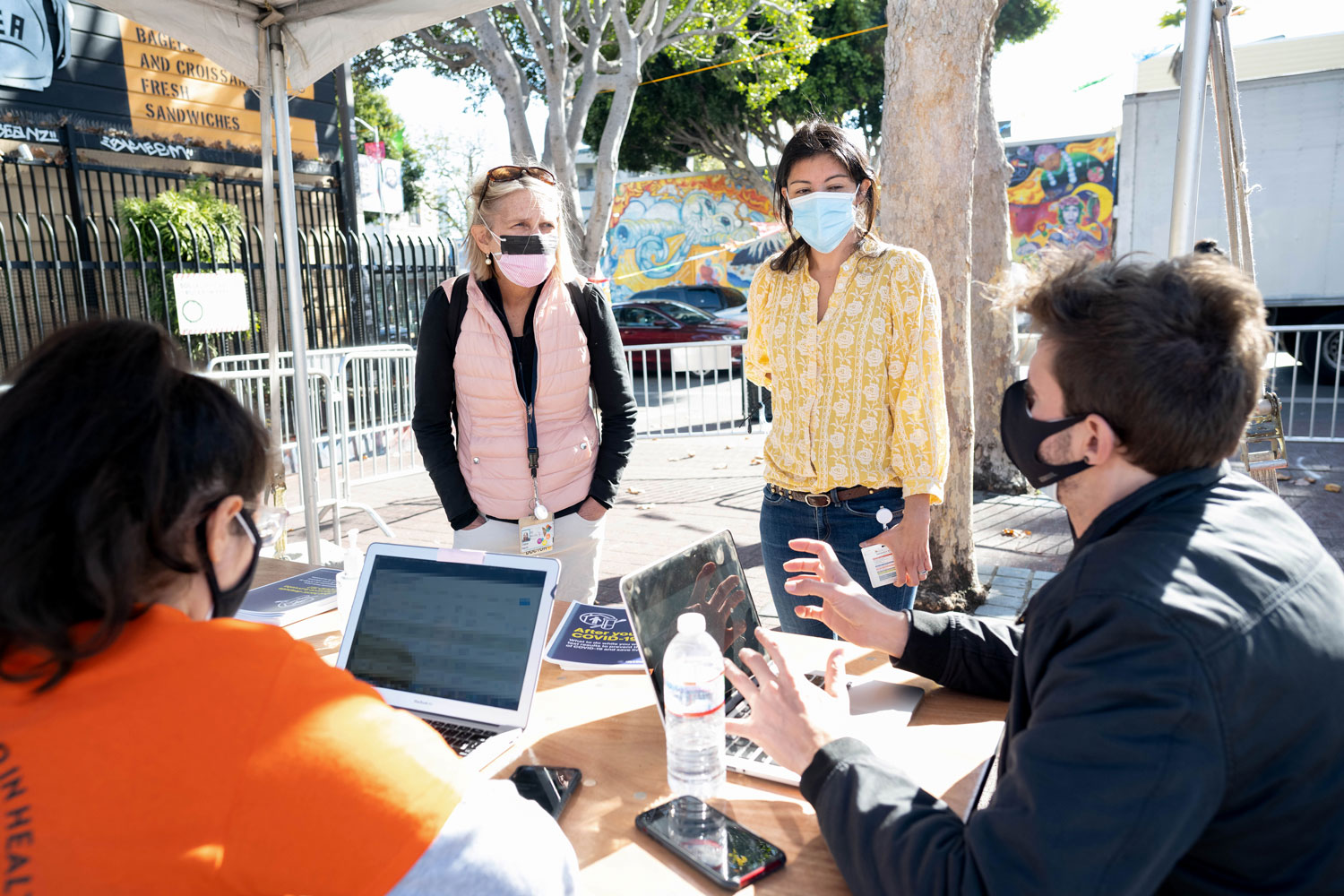
Unidos en Salud (United in Health)
Unidos en Salud (United in Health) – led by Diane Havlir, MD, UCSF professor and infectious disease expert at Zuckerberg San Francisco General Hospital and Trauma Center, and Carina Marquez, MD, infectious disease expert – was a partnership with the San Francisco Department of Public Health. Together with a coalition of scientists and others from the Latino Task Force, CZ Biohub and UC Berkeley, they launched one of the largest COVID-19 testing studies in the nation. Since April 2020, Unidos en Salud has provided more than 99,000 COVID-19 tests and administered more than 68,000 vaccinations. Photo by Susan Merrell
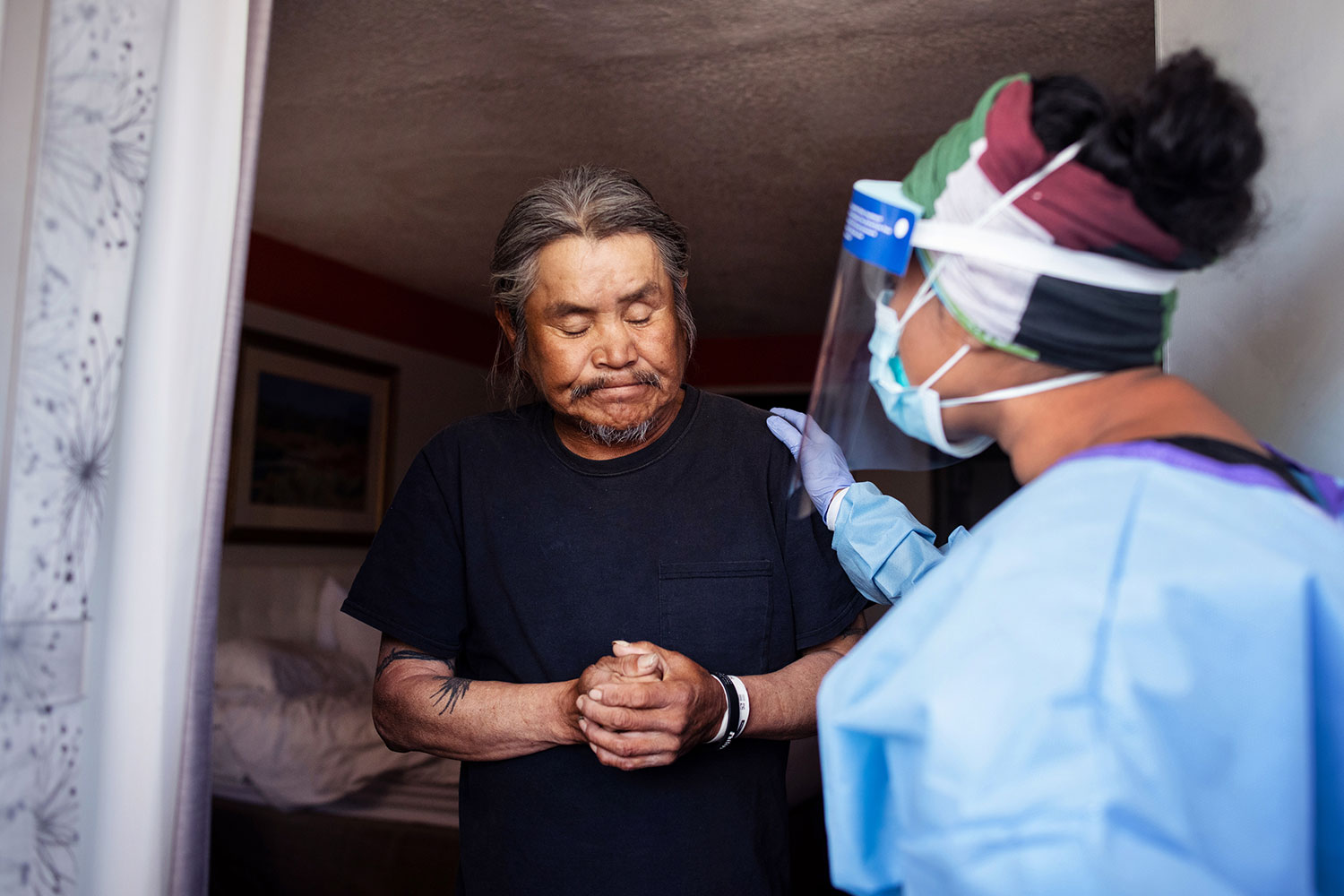
Serving the Navajo Nation
Navajo Nation, the largest U.S. Native American reservation, faced a disproportionate number of COVID-19 cases in the early days of the pandemic, reaching the highest per capita rate in the nation and stressing its health system. In April and May 2020, UCSF Health and the Department of Medicine’s Health, Equity, Action and Leadership (HEAL) program sent 35 volunteer physicians and nurses to support the Navajo Nation’s COVID-19 response. Photo by Barbara Ries
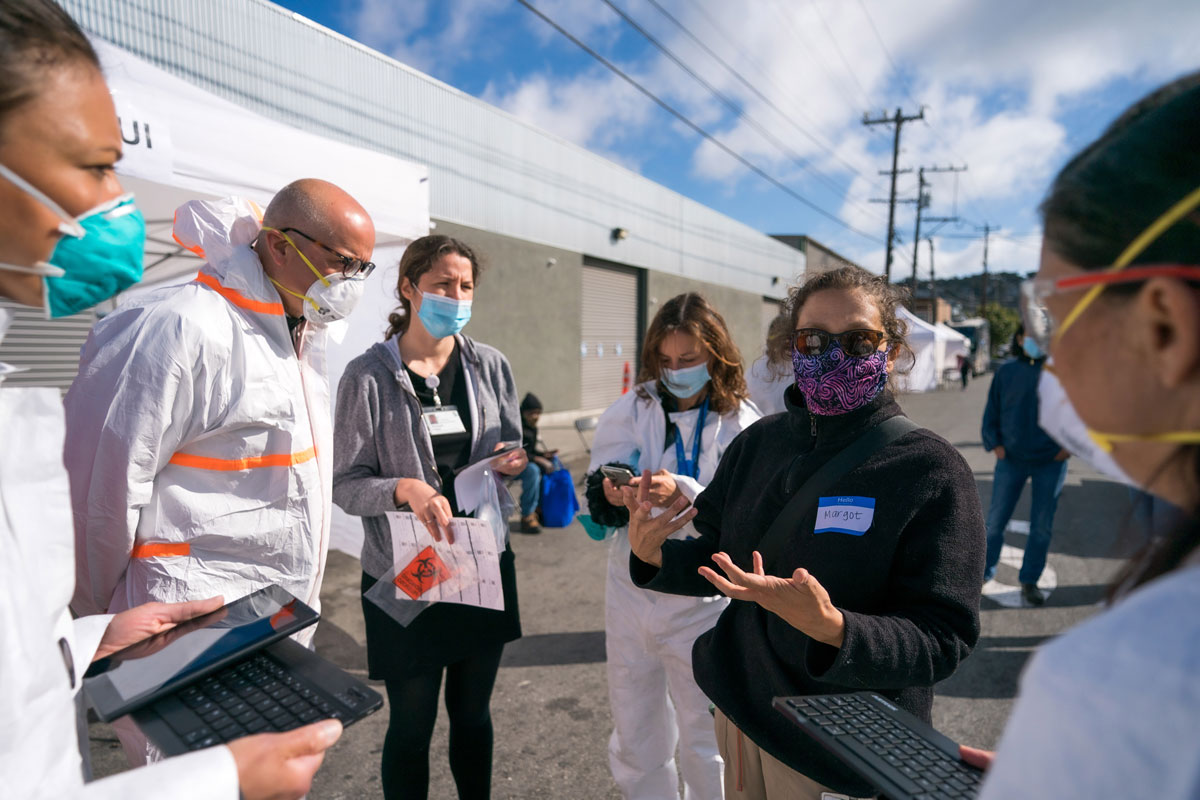
Project RoomKey
Project RoomKey, envisioned and co-developed by Margot Kushel, MD, this program provided more than 25,000 people experiencing homelessness who were at risk for poor outcomes from COVID-19 with a room to shelter in place. It also provided others who were COVID-19-positive with a room to isolate and recuperate. This was the first program of its kind in the nation to get FEMA to reimburse costs to shelter people who were homeless and was replicated across the country. Photo by Maurice Ramirez